During my conversation with They Might Be Giants co-founder John Flansburgh I asked him after over 30 years being in a band, what are some of the things that have gotten harder and what has gotten easier. After about 15 seconds of considering he responded, “I will take this large glass of truth serum and say that I don’t think we’re nearly as scared of the world as we were when we started. And in turn, I think the world has become a less scary place. Everything has just changed so much. In some ways it’s been so incremental you don’t even notice all these gates have been taken down. Some of it’s for the better some for the worse. I was talking to a friend of mine of the phenomenon of the weekly city papers with all the cultural stuff like The Village Voice was just such a huge part of rock culture, turning people onto new bands. It was a community builder. I think people tend to demonize rock clubs and radio stations and labels that seem like they’re the power brokers and not the advocates. But obviously, it’s more complicated than that. Being a musician is much simpler than it was back then. With YouTube and streaming and all the ability to get your music online by self-publishing, you can leapfrog over a lot of the barriers that were between you and the audience. With that said, it creates a tremendous amount of noise. You can make stuff, but whether anyone hears it is a whole other question.”
That dynamic of creating music vs. anyone wanting to hear it is something that continues to affect Flansburgh’s thinking. Last summer, the band performed at the gaming convention Gen Con in Indianapolis for its 50th anniversary. It was a surreal experience for Flansburgh because it put the band’s longevity and popularity into a different perspective.
“We don’t do a lot of shows like that and we’re doing them for events we don’t fully understand,” he said. “I mean that stuff is really cool and fascinating but it is very much not my world. We had no idea what to expect playing there. We really thought we were going to be playing in a corner of the basketball court, which in a way would be much worse than playing at a club. But because it’s such a massive event, all these people just poured in. I don’t know what the final turnout was, but it was just glorious. It was an incredible response. It felt great. After the show, I was reminded that we had played a Gen Con 12 years ago in Madison, Wisconsin. And it was just in a Shriner’s Club building. It was super small and the people really had no interest in our band, they were just sort of lurking in the back.”
Always moving ahead, They Might Be Giants are starting 2018 with their 20th studio album, simply titled I Like Fun. Not that you should really compare one They Might Be Giants album to another, but I Like Fun is really unlike anything they’ve done before.
“There’s a fair amount of restraint which is the best kind of evolution. When we started we were kind of a home recording/bedroom rock band and there was a lot of overdubbing going on,” he said. “I think continuing with that kind of band would develop into something overproduced. There’s no limit on how much you can track a piece of music these days. Given where we started, we could easily be the kind of band that has 50 tracks on every song. Layers of background vocals and everything being stacked up.
“I think we just found a way to keep it lean and that makes it more powerful,” he went on. “We’re in a very sorted out place as an organization and working with the same rhythm section for more than a decade. Our drummer Marty had been with us since the early 00s, but he’s still the new guy. He’s the mental health of the band. And yet, he will never have been in the band nearly as long as John [Linnel] or I. It’s sort of a kooky dynamic but it’s still a really good one. I feel like we’re just building on the experiences we’ve had and the things we’ve had to do. Any ensemble records sound really intense and full-blooded musically. It’s a huge challenge I think. It’s not like just add water. You can easily make a record sound competent, but to make a record that’s exciting that’s more of a challenge. “
According to John, the songs that make up I Like Fun are from a constant work output for the band. A few years back, the Dial A Song service (which was a major part of the band’s beginnings and one of the most important parts of my teenage years) was revived and served as a way for the band to continue writing/record beyond an album cycle.
“This is our second go around with an expanded work order with a Dial A Song year because, much like in 2014, we’re basically making an album and putting a tour together and also this year-long project that encircles it,” he said. “We probably recorded 30 songs for I Like Fun and pulled the best 15 from that batch. All the other songs that were left out will all be on the Dial A Song service for the rest of the year. So we’re still at work writing and we’re already going back into the studio soon to record more just to keep the workflow going. ”
The revamped service has a more modern format now. The songs are streamed online instead of heard over the telephone, but John says it’s still a way to get songs out that maybe wouldn’t make it on an album.
“I can imagine it would be frustrating to have so much stuff that would never be heard. So it’s kind of glorious to have that kind of a direct output for our work. And it’s something that’s been part of the band from the very beginning. So we’re really squirrelling away as many new songs as we can. It’s helped us loosen up a bit. In a different era, we couldn’t have done that. Just by temperament, we could’ve been fiddlers on the same handful of songs for 3 years or something. Having things like Dial A Song in our lives and doing music for television that are by definition a lot less precious, we just developed as songwriters but as people to work more quickly and efficiently as possible. You develop a different skill set, and I don’t think it’s inherently hacky. Working quickly doesn’t mean you’re being sloppy. I think it requires you to work more decisively. And the result can be extremely exciting and I’d recommend it to anybody.”
Maybe it was their past venture into the children’s music world, but my first impression of the title I Like Fun was that it was another kid’s album. Which I would have been completely fine with. But lyrically and musically it is every bit a “proper” They Might Be Giants record.
“It is an odd title and to us, it’s not really a bold declaration,” John explained. “Everybody likes fun! We really go at things one song at a time and we don’t really know how it’s all going to stack up until it actually gets stacked up. There’s a lot going on and it’s just the top level of a very complicated set of ideas. I wouldn’t’ say it’s an ironic title, but it’s not quite what it seems. The album is relentlessly dystopian I think in a way it was just a way to kind of reshuffle the deck. The title track better explains the multi-level nature of the album title. It starts in a pharmacy, waiting for the painkillers to arrive. Any one of our albums could be called ‘Death Trip’ and it would be accurate. Maybe it’s just a reflection of the times because these are very worrying times. That was the background to what we were doing. I think for us, death and despair are rich topics. If you think about it, there are so many different ways to get into that idea.”


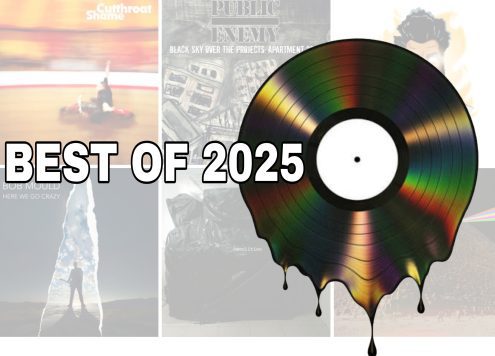

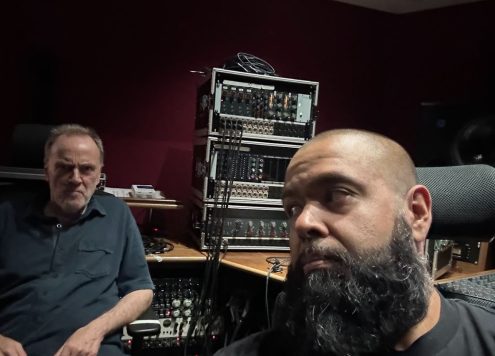
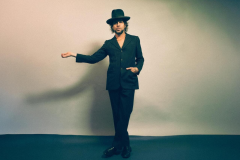

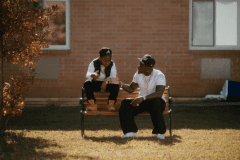
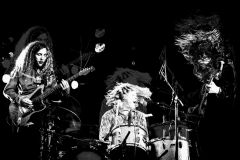

Social Media